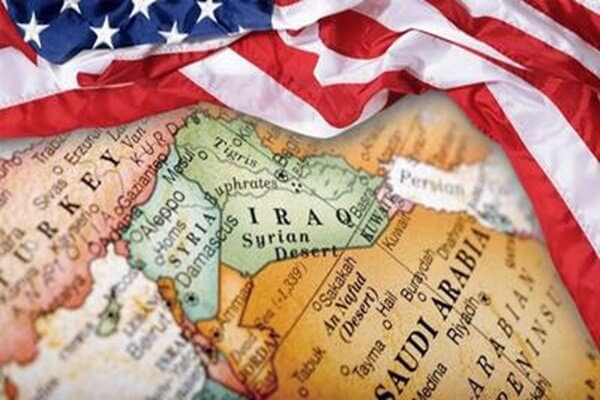The American economy is in crisis in the shadow of the crisis in the Middle East.
According to the Al-Nahar newspaper, American military technologies are fighting on behalf of the Zionist regime. And this country widely supports this regime. For the Arabs, patience may be a virtue, but it is not always true, especially when it comes to American support for Tel Aviv.
Even for the Americans themselves, this issue is worrying from another angle; Because ordinary American citizens are afraid of their country being caught in a “long-term war”. They have had this experience in the global war against terrorism, from the mountains of Afghanistan to the plains of Iraq. The financial burden of the war prompted former US Secretary of Defense Donald Rumsfeld to describe the track’s failures as a “swamp”!
Economic issue
The basic assumptions of the Americans have been questioned at every stage of the wars; According to Brown University’s periodic update of the Costs of War Project, in addition to the thousands of American soldiers killed and wounded, they have spent about five trillion dollars on the wars in Afghanistan and Iraq.
They are worried that a new war in the Middle East will lead to global economic and political crises, especially since the US economy is in serious trouble and the “economy paper” will play a decisive role in the results of the upcoming presidential election in November. At the same time, America has new divisions regarding its place in the world.
In Washington today, opponents of the tax hike have risen sharply because they worry about the negative effects it will have on the economy and job growth.
Taxes are to the government like alcohol to addicts; As Ronald Reagan said, “Government is the problem, not the solution.” Therefore, if a war occurs, the Americans prefer to end it quickly and decisively; Whether it is in the Middle East or elsewhere.
They gather enormous military power to make their point in any regional conflict in the Middle East, quickly and with the least losses for themselves and the most losses for their enemies – the same logic is currently being used in the Zionist regime. However, it is difficult to convince the American people to make long-term sacrifices to win wars.
In this context, Professor Andrew J. In an article in Foreign Affairs magazine, Basioch, a professor of international relations at Boston University, warns that Washington is moving toward “long-term wars” and will first deceive American citizens and then the rest of the world, especially the Middle East.
He explains that World War II was a memory of victory for most Americans; They think that just as Washington defeated Germany and Japan in World War II and then contained the Soviet threat during the Cold War and guaranteed freedom, it is necessary for America to lead the world with military power.
Basiouch exposes this idea like this; He believes that this is a kind of “brainwashing” for Americans and the world.
He points to the “Vietnam War” that shattered these illusions, as well as the corruption of America’s adventures—the so-called “Global War on Terror” after 9/11—that exposed America’s claim of military superiority as a hoax.
Basiouch adds that the disappointing results of the wars in Afghanistan and Iraq were meant to be a warning to America, as it was to Britain in Egypt, when Egypt under Gamal Abdel Nasser forced Britain to withdraw from the Suez Canal in 1956, and British military efforts Failed to retake the canal. This disaster humiliated Britain.
bad news
This message is “bad news” for American foreign policy circles and they are advised to refrain from entering wars, especially engaging in a long war in the Middle East in support of the Zionist regime; instead, financial resources should be used to improve the country’s economy.
If the situation gets out of control and the Zionist regime and Iran enter into a regional war that other countries may also be drawn into by force or of their own accord, there is a risk that America will suffer a crisis.
Meanwhile, many Americans—according to polls—want improvements in health, education, recreation, and infrastructure.
They are against a protracted war in the Middle East or other parts of the world and ask: Why aren’t America’s schools and roads being repaired in Colorado or California instead of spending money on wars in the Middle East?
It also confirms growing American displeasure with funding and arming Ukraine in its war with Russia, especially as public service funding comes under heavy scrutiny in the US budget and debt ceiling negotiations. Entering foreign wars, even because of the Zionist regime, is not in line with the national interests of America.
The real surprise, Bacievich says, is that the past two decades may have been America’s long-delayed “Suez moment,” but the American establishment has forgotten that fact after the defeat in Iraq and the longest war in U.S. history in Afghanistan have been erased from their memory. They deny and claim that the world still needs more US military power.
No one is sleeping peacefully in the Middle East right now. What is happening in the region, from the wars over the Arab lands that are watered with their blood, is a black spot in the history of mankind. It is as if all the sufferings accumulated in this region over time have erupted at once. It seems that power and dominance continue to determine rights in any era.

